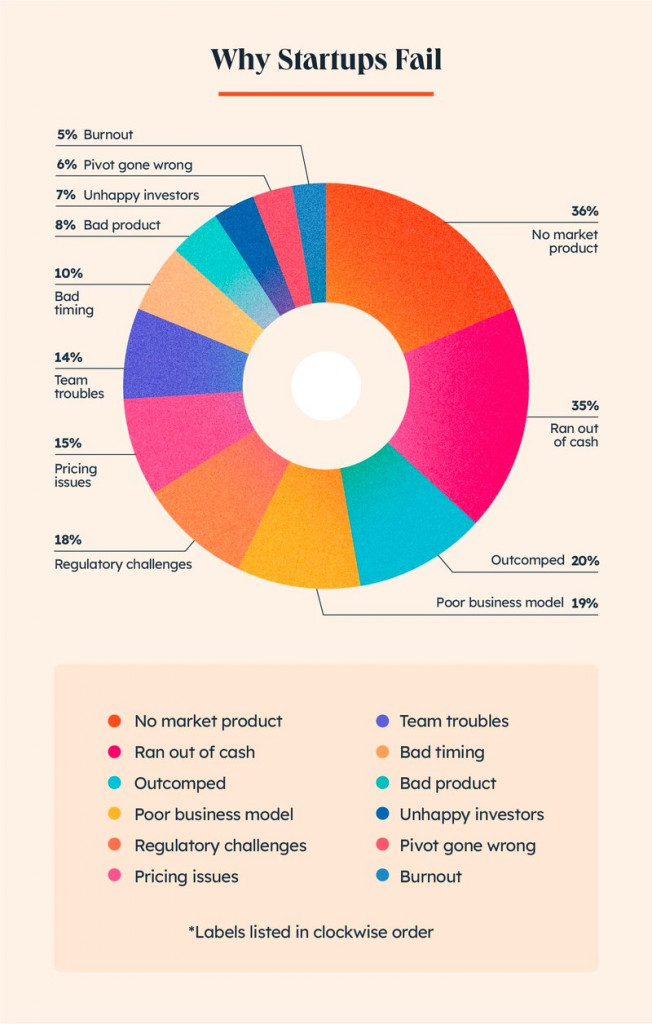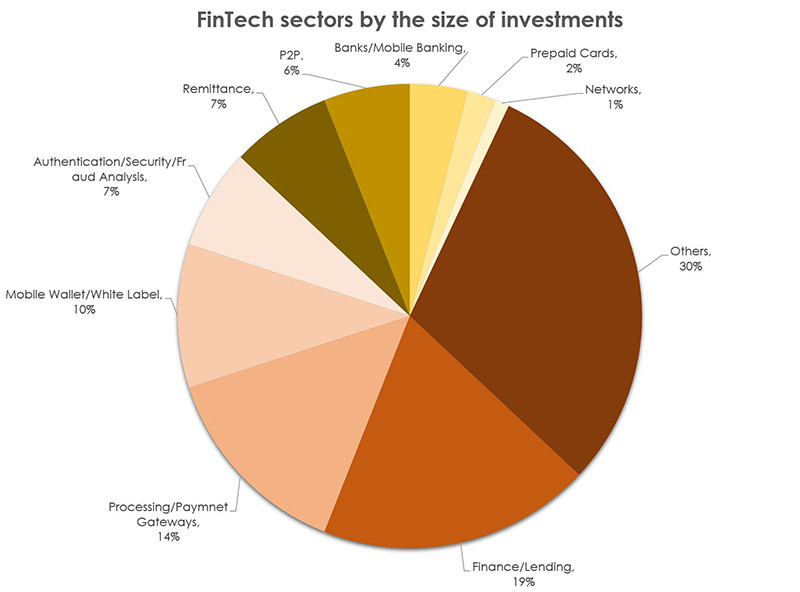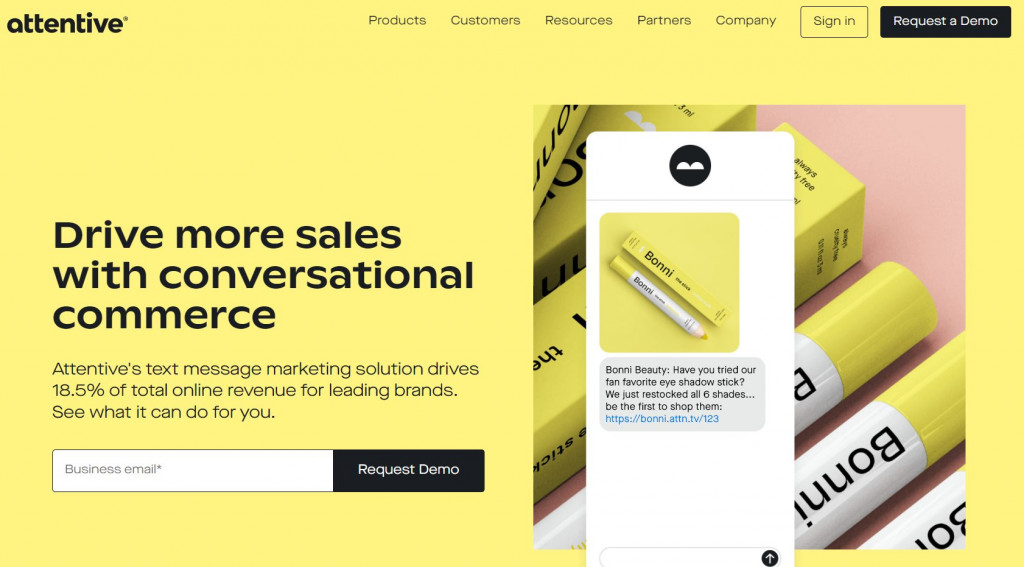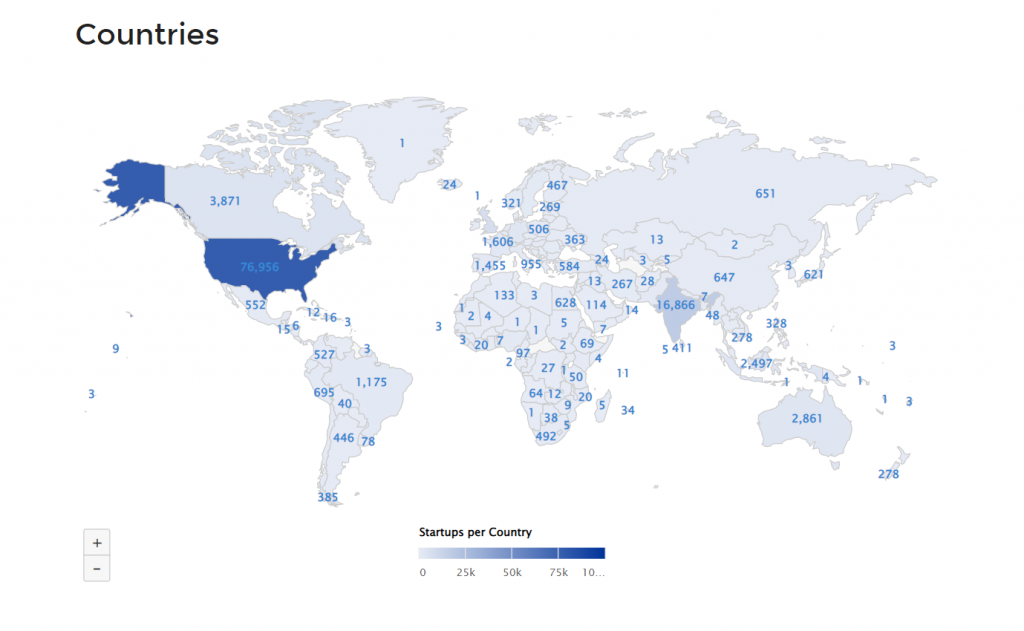Business is changing. Developing technologies are worth billions of dollars, making them more attractive for startups looking to fit their niche in the market. However, coming up with a successful business idea for a startup is a difficult task for a modern entrepreneur. That’s why startups are constantly searching for cutting-edge trends to keep them in the lead. A few trends in 2023 are worth paying special attention to.

Before starting a startup app development company (just like any other project), you must understand the challenges you will face. It is very important to conduct market research in advance, despite the fact that this stage can be very time and resource-consuming.
Do not forget that the product being developed must be ideal for the end user, and not just for the creators, whose judgments about its usefulness may be go completely wrong in the process. And finally, when it seems that all good business ideas have already been taken and there is no chance to start a new business, checking on a new startup trend may be a way out. So, what are the latest startup trends out there?
Most promising startup industries
More than 40% of startup technology companies fail in business because there is no real market need for their services or products. Do your research and make sure there is a need and demand for the business growth you want to start and the most promising industries? Here are the areas to consider first of all.

Fintech startups
Last year was rich in emerging the fast-growing newcomers. In 2022, European Fintech has seen unprecedented growth. Dozens of new unicorns have emerged lately, a number of startups have gone public, and several new giants such as Revolut and Klarna have risen massive funding. Even the tech companies that hadn’t previously been involved in finance took notice of the growing popularity of the fintech sector and without any delays started promoting their own initiatives in the industry. IT giants such as Microsoft, Intel and Google are showing a keen interest in the fintech sector, backing it up with significant investments too.
Here are some examples:
Uncapped
Year of launch: 2019.
Headquarters: London, England.
Team growth: 554% (from 11 to 72 employees).
Total funding: $117 million (including debt).
Uncapped works in the field of revenue-based financing (RBI, revenue based investing or revenue based financing). The company offers recurring e-commerce startups an alternative to venture capital financing with specialized loans up to £5m ($6.8m).

Primer
Launch year: 2020.
Headquarters: London, England.
Team growth: 329% (from 24 to 103 employees).
Total funding: $73.4 million
Primer is a no-code payment integration service. It allows merchants to easily combine multiple payment systems, simplifying their management and eliminating the need to rely on just one tool.
Fintech provides much greater opportunities for fundamental global changes in the infrastructure and functioning of the entire financial sector of the economy. To realize the opportunities of Fintech, banks and fintech companies must collaborate and complement each other.
Artificial intelligence startups
Artificial intelligence (AI) and machine learning are very hot trends. Google and Microsoft have added all sorts of AI services to their clouds, and startups have started putting AI in their apps. More advanced technologies go beyond traditional algorithms to build systems—they already understand, learn, predict, adapt, and potentially operate autonomously. According to experts, the AI market will grow to $5.05 billion by 2023.
Here are some examples:
The most promising small business ideas selected by AI today include personal training companies, some online shops, or tutoring services. ChatGPT, an AI chatbot from OpenAI, is causing a stir in the technological community.
While artificial intelligence is advancing on all fronts, from cloud services to the Internet of things, another promising area is developing that’s virtual assistants. We are already used to Siri, Cortana and Google Now. According to Grand View Research, the market for intelligent virtual assistants (IVAs) will reach over $12 billion by 2024.
Metaverse startups
We observe the top businesses investing the most in the metaverse this year, with the worldwide metaverse industry expected to reach $1.35 billion by 2025. The metaverse emerged as one of the biggest buzzwords to take over the telecoms sector in 2022. And there are no indicators that this trend will reverse. The biggest investments into the metaverse are likely to come in 2023 from the top telcos in the globe as well as other niches like sports, gaming, e-commerce and online shopping and others.
Here are some examples:
Shopify
E-commerce and online shopping are two industries that the metaverse is poised to totally revolutionize, even if they may not be the first things that spot your mind when you think of it.
In the metaverse, virtual shopping is a route that is getting more and more popular.
Shopify is making significant efforts in this area because it is primarily concentrating on the area of augmented reality shopping capabilities.
Nvidia
One of the top manufacturers of graphics processing units (GPUs) and leaders in AI computing is Nvidia.
It is leading the way in GPU developments for consoles, laptops, and PCs (amongst a variety of other uses). It is hardly unexpected that Nvidia is one of the top investors in the metaverse given its dominant position in the technology and graphics industries.
Biotech startups
In the past year, Pfizer-BioNTech, Moderna, and other biotechnology companies have come to the forefront, making it a trend to provide services in bioengineering and other stuff like that.
Three essential elements sum up what a biotech startup is: It’s a business that creates technologies to use biology to address difficult human problems. The firm is constructed around this technology, patients, and those who assist them using a unique operational approach. The ecosystem for biotech startups is unique. These firms are typically hazardous investments because they need a lot of money and take a long time to develop.
When you look past the obvious reasons biotech firms might fail, such as poor science, inexperienced leadership, a lack of funding, or a shifting market, other unexpected commonalities still exist. Nevertheless, biotech remains a trend.
Here are some examples:
Terapify
5-year increase in searches: 280%
Growth of searches is exponential.
Founded in 2019
The place is Ameca, Mexico.
Finance: Not disclosed (Seed)
Terapify is a medical technology start-up that offers clients internet therapeutic services. The platform connects users with qualified therapists and provides video sessions, in-app messaging, and resources for managing mental health.
Healthy.Io
5-year increase in searches: 300%
Growth status of searches: Peaked
Founded in 2013
Israel’s Tel Aviv is the place.
Financed at $90M (Series C)
How they act: Healthy.io, a pioneer in medical technology, offers FDA-approved software that converts smartphone cameras into at-home diagnostic equipment. Users can perform UTI testing, pregnancy monitoring, open wound assessments, and more at home with the help of this app and related kits. The firm has collaborated with institutions like NHS, Johns Hopkins Medical, and the National Kidney Foundation throughout the years. Healthy.io has a 93% patient satisfaction rating, according to their website.
Mobile statrups
The mobile revolution is an important trend to keep in mind, and in order to be successful, companies need to consider that their product must be available on a variety of devices. The rise of hones and other smart mobile devices has changed the way consumers shop, and these changes in customer behavior have had a significant impact on the policies of companies that provide services and sell various goods. Thus, the retail industry is undergoing a significant shift: the number of shoppers in traditional stores is decreasing, online research is gaining importance, and smartphones are becoming an integral part of it.
Have you ever wondered which mobile startups are growing at the fastest pace?
Here are some examples:
Attentive

A mobile messaging platform for forward-thinking businesses and brands is called Attentive. Information about the launch
location: the United States, New York City
Start in 2016
Founders: Ethan Lo, Brian Long, and Andrew Jones
Employee range: 501–1000
Amount of funding: $863,000,000
Seven financing cycle’s total
19 investors total.
Here is a link to their webpage.
Upsie

A smartphone app called Upsie provides guarantees for purchases of electronics and appliances. Information about the launch:
Location: the United States, Minneapolis
Start in 2015
Entrepreneurs: Clarence Bethea
Eleven to fifty employees
Amount of funding: $26,380,000
Six financing rounds total
36 investors, total
Here is a link to their webpage.
Cloud technologies
The cloud computing world is rapidly expanding to meet the growing demand for people working from home. To launch a cloud technology startup, you must first purchase hardware (server) and software (hosting control panel). In addition, it is critical to allocate resources to marketing your business in order to attract new customers and build trust. This will make them feel confident that your startup will protect and preserve their valuable data, etc.
How startups can succeed in 2023
The best way to generate a startup idea is to watch every survey and trace the trends. Great startup ideas surround you, and you will notice them if you look at the world with an open mind. The problem is that when people consider startup ideas, they tend to come up with bad ones.
Technology
Some of today’s largest and best-known corporations, such as Google, Apple, and Facebook, were once tech start-ups. In previous examples, Google has revolutionized search, Apple has revolutionized home computing, and Facebook has connected and shared with others online.
Several types of tech consulting startups can succeed in the nearest future, and the first step is to determine what particular services your company will provide. For example, your company may provide consulting services to companies that want to understand better how to use information technology (IT) to make better business decisions. Your tech consulting startup should be based on your skill set and the level of demand for your specific services.
Development
Startups that are created by one or more business owners who desire to provide a custom product or service they feel there is a market for and are new-age development companies. These businesses typically have large startup expenses and little income, which is why they seek funding from a number of sources, including venture capitalists or other investors. These startups are also highly technological businesses with the best tack stack and tools and the staff hired.
Marketing
Marketing is a big job. It is such a large and multifaceted layer of work that no one is surprised by the abundance of advice and offers of help. And really great marketing is even more than that. Marketers can make us laugh, cry, and even take our credit cards and spend money. When a marketer has done their job well, customers feel like heroes, dragon lords, kings and princesses. That is why marketing apps and various startup services for promotion are also a great idea. ROI, market customization, PoC, content strategy and analysis, etc. – there’s a lot to do in marketing for marketing companies.
For example, marketing according to the 5P, 7P, 4C models are all the main concepts of the modern day marketing mix. The only deference now is that it requires a lot more effort, because marketing is a whole orchestra of simultaneously occurring events that change depending on the context. So are the modern sratups. This is a good starting point and is better than nothing. Over the past couple of years, it’s become obvious that marketing is much more multifaceted, sensual and interesting, than earlier, which has also become a trend.
Moreover, the companies and individuals who want to increase website traffic and reach new audiences are in high demand for search engine optimization (SEO) or digital marketing services. If you’re an SEO expert, turning your skills into a startup helping clients get the most out of their online platforms can be a very benefitial effort. Since this is a results-driven startup, you will need to dwell on your SEO skills and knowledge, and scale the team in order for your methods to result in a noticeable increase in your client site traffic and more.
Security
New smart devices can be used for both harm and good. Therefore, the challenge for developers is how best to make them smart so that they can effectively defend themselves. This is the idea behind the adaptive security architecture, which is also a recent technology trend. Adaptive security was predicted to be a $7.07 billion market by 2021, so it’s even bigger today.
Trends in startup exits
Selling the business to a larger one for a profit is the primary exit strategy for entrepreneurs. Investors are in the same boat. But what if you don’t want to? Lets’ consider some more exit strategies apart from just selling out the business to someone with funds.
Going public
Suppose you want to develop your startup into a successful company. In that case, modern technologies alone are not enough – you simply cannot do without going public with a good marketing strategy. Don’t focus only on your product – remember to grow your own business. To sell your product, you need to introduce it to potential buyers, and this is the task of well-thought marketing.
Sponsorships
The growing interest in fintech startups from huge technology tycoons has led to new flows of investment and the emergence of incubators. However, other market players go hand in hand with the fintech industry, whose field of activity at first glance is not related to finance at all, while they can become competitors of financial technology companies. Its social media companies like Facebook and WeChat that have realized the great opportunity financial transactions within their social networks can bring to them back. So, they are great sponsors in the area of their interest.
Partnerships
As a rule, young companies rely on the funds of their founders and a few people who may become business angels, investors or reliable partners in the early stages of startup development. Most startups lack the support of experts in their chosen industry, which would add professionalism to them and help them cope with many factors to strive and exit the startup phase soon.
Scaling
With modest resources and limited access to customer bases, startups often focus on solving local problems and do not think about entering the global market, which can later turn into serious issues. Therefore, startup founders need to think ahead of time about strategies for further scaling the business.
Acquisition
Apart from selling, some startups may get lucky enough to acquire some new team, department, or even a whole company. And that’s where the knowledge of the legal basis will give the founders of young companies a number of advantages.
An acquisition is a business transaction where one firm pays company money to purchase a company, an organization, or its assets. Google’s 2005 $50 million purchase of Android is one example of an acquisition. Pfizer purchased Warner-Lambert for $90 billion in 2000.
In addition, do not forget that in the field of fintech, banks and insurance companies should often be considered as potential partners or customers, rather than competitors. In addition, startup founders will face many other challenges, which may vary depending on the chosen niche and market.
Which countries have the most startups
How many startups are created each year? By far, the country with the most startups is the United States (76,956). India comes in at number two on the list with only 16,866 startups, and the UK takes the third place with 6,220 startups. Israel and Canada also made it to the top 5. They follow France, Great Britain, Portugal and the USA. Poland, Italy, Sweden and Australia are named as countries where conditions for start-ups are steadily improving.

United States
The USA is great for people who create interesting projects. This country provides maximum opportunities for those who are looking for ways to implement their business ideas. And it’s not just the famous Silicon Valley. In recent years, other innovation centers have been successfully developing throughout the country: Massachusetts, Texas, New-York, etc. Of course, not all business hubs are listed here. In any case, the trend from Seattle to San Diego is the same – to support the prosperity of small businesses and innovative technologies. How many startups in the us?
Index Ventures analysts note that for countries, the presence of bright and well-known startups brings huge economic benefits in terms of innovation, job creation and productivity growth. The main obstacle to the growth of startups in Europe, the company admited is the lack of talent due to the brain drain in Silicon Valley corporations with “the biggest pockets.”
Thus, the USA still remains the leading innovation state in the world with the countless startups emerging and disappearing annually. Here are some projects that have launched less than two years ago and raised less than $100 million.
Saturn
This is a messenger-scheduler for schoolchildren
Cost: $225 million
Country: USA.
So far, the application is aimed at high school students, but in the future they want to offer it to university students. In it, teenagers can chat, check the schedule, enter personal tasks for the day, and tell subscribers what they are doing – for example, they can be invited to join lunch.
Invisible Universe
This is an Animation Studio
Cost: $72 million
Country: USA.
The Invisible Universe creates characters with celebrities to use them as stand-alone heroes of entire social media franchises. It has already drawn the cartoon dog, inspired by the pet of actress Jennifer Aniston, as well as the girl Kai-Kai – her prototype was the doll of the daughter of a tennis player Serena Williams.

India
The Department for Promotion of Industry and Internal Trade acknowledged over 19 thousand startups in 2022. (DPIIT). Since 2016, India’s startup sector has expanded as enterprises have been spread quickly around the state.
Some tremendous Indian startups have now grown into huge companies such as Zomato, Paytm, Ola, and Cred. Perhaps 2021 has been the best year for Indian startups, especially in creating unicorns – be it an Indian tech startup or an Indian fintech startup. But the latest period indicates that there’s still a tendency because today India’s startup ecosystem ranks third in the world with about 26,000 startups nationwide, including at least 100 unicorns.
Over the past three years, India’s startups have seen consolidated investment inflows of over $36 billion. Dozens of Indian startups have achieved unicorn status, surpassing a market valuation of over $1 billion.
PharmEasy
It is an online pharmacy and the only unicorn startup in the Indian healthcare system.
According to company management, PharmEasy maintains strict quality controls for over 90,000 partner retailers. Customers can order a variety of diagnostic tests from certified partner labs, and even order medicines using a mobile app on Google Play.
PharmEasy’s owner, API Holdings, recently said it would invest $613 million to acquire a 66.1% stake in Thyrocare, which operates a network of diagnostic laboratories. According to TechCrunch, this is the first acquisition of a publicly listed firm by an Indian unicorn startup which is one of the best exit options.
Loan frame
The total funding is $12.3 million.
“By combining the world-class processes of the world’s leading banks with India’s deep SME lending experience, data science and cutting-edge in-house technology, we are dedicated to helping small businesses grow,” the company founder Shailesh Jacob says of his company.
His team provides loans and financing to small and medium-sized Indian companies and helps dealers and distributors get affordable short-term inventory financing when they need it, as well as unsecured loans with a choice of loan terms and repayment options.
Its goal is to create the largest SME lending market in India, backed by the world’s leading private and venture capital investors.
Before starting the project back in 2015, Jacob was an investment banker and owner of an outsourcing firm that he eventually sold to Moody’s.
Our podcast gathers the insights of other technology leaders from variety of niches, including the latest trends in startups. Feel free to tune in.
United Kingdom
How many startups are there in the us is clear. What about the UK? The UK is experiencing a massive interest in entrepreneurship: if in 2013 502,068 startups were registered, then in recent years, about 2,000 startups are created per day! Investors do remain onboard – in 2022, £12.4 billion was invested in tech start-ups alone. At the same time, the UK beats not only its own records, but also conquers the world ratings. The Kingdom ranks eighth in the Doing Business ranking, very close to the top five countries with the most favourable business climate for startups.
The British keep up with the world’s leading trends: a healthy lifestyle, a conscious attitude to the environment, self-education and high technology. And where there is interest, there is always an opportunity to create a startup and earn money. “Green”, “Eco”, “Organic” – these are the three pillars where you can safely build your business in no time. The world is getting stuffed with smart complex devices, smart toothbrush, smart refrigerator, or even smart home do not seem to be an invention of a science fiction any more. Thus, a wise startup can kill two birds with one stone: fitness apps will attract high-tech enthusiasts and healthy lifestyle advocates.
Humaniq
Humaniq is an application based on the Ethereum blockchain that provides access to banking tools to those people who cannot have access to modern banking services, but have a smartphone and have access to the Internet. The service allows you to invest in the HMQ cryptocurrency, which is called the cryptocurrency for the poor. Unlike other services, Humaniq uses biometric technology to protect against fraudsters.
Startup founder and creator of the Future Fintech accelerator, partner in the Ethereum project, member of the board at Blockchain.community and author the book “Bitcoin. More than money” Alex Fork as a businessman is pretty sure that the electronic currency will modernize the market.
He announced the creation of his service back in 2017.As of June 2021, the company was already among the top 30 most funded crypto services in the UK. It has managed to raise about $ 5 million (£ 3.6 million), admitted Tech UK.
FAQs
What are the 5 key elements of a startup?
Timing, team, concept, business model, and finance are the five determinants of company success, according to creator Bill Gross. Money is important, but it should come after you’ve decided on the other factors.
What are the fastest-growing startups?
A business with the potential for quick expansion is considered a high-growth startup. There is no one recipe for success, but high-growth industry firms tend to have a few traits. Large market opportunity is the most crucial component for a high-growth firm.
How many startups are created each year
According to the data from the US Census Bureau, 4.4 million new product enterprises are established annually on average. This average is based on statistics on new businesses in the US over the previous five years. The number of new firms is on the rise due to a surge in startup activity that followed the pandemic’s start in 2020.





















